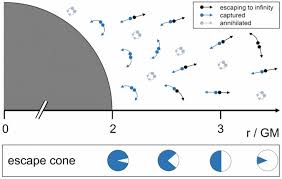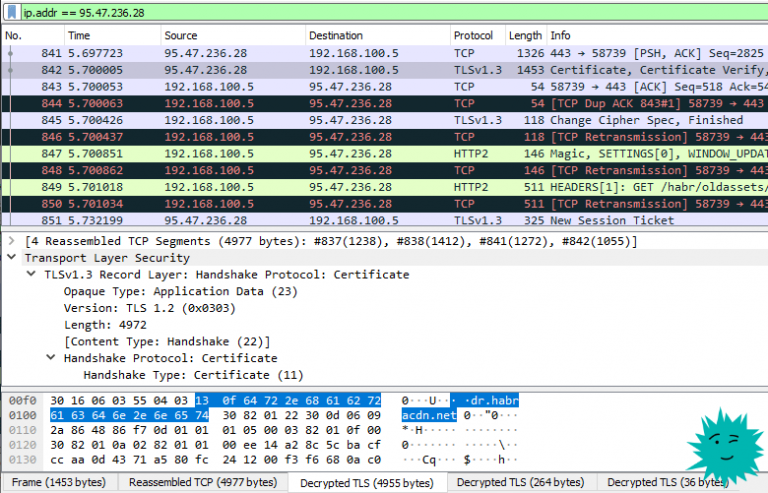data analytics in the gaming industry
Hello! My name is Darina Kukhtina, I work as a marketing analytics lead in a game development company and as a course mentor “Data Analyst” in the Practicum.
A mobile game development company is the first job that I really enjoy. I started with analytics in software development. Left because it was boring without “live” user data. Then she worked in medicine, where she had to constantly do the same tests. After that, I got a job in an advertising network. There were interesting tasks, but I did not like the product: we placed annoying pop-up ads. And only then did I get into gamedev.
In this article I will tell you what analysts do in the mobile gaming industry and what qualities they must have in order to work, develop and not conflict with themselves.
What do analysts in the gaming industry do?
In this area, there are two broad categories of analysts – product and marketing. Product analysts research games, conduct A/B tests, and analyze new features, often working alongside game designers. Marketing analyze the effectiveness of promoting games together with marketers.
Here is a sample list of tasks product analyst:
Evaluates the feasibility of a feature – a particular innovation in the game. If a game designer or producer wants to add new mechanics to the game, then the analyst helps to figure out if it’s worth it. For example, if the potential audience for a feature is small and development is expensive, it might be worth abandoning the update.
Participates in the preparation of the feature for launch. In particular, it plans logging, that is, it determines which user actions to record and take as the basis for future tests.
Runs and analyzes A/B test results. Analysts measure whether a group’s gaming experience has improved with the update, and by how much. Based on this study, decide whether to introduce the update for everyone.
Creates dashboards with key metrics. Analysts create dashboards so that the entire team has access to product metrics.
Here’s what a marketing analyst does:
Participates in advertising campaigns. An analyst can help a traffic manager set KPIs or dissuade them from buying ads in front of an audience if the cost of attracting a client in it is too high.
Calculates business metrics. Usually they are calculated automatically, and the traffic manager immediately receives ready-made data. But if something breaks or a new dashboard is needed, the analyst turns on.
Automates the actions of traffic managers. For example, it sets up automatic disabling of advertising campaigns if their clicks or conversions drop.
Builds traffic attribution models. A user can see the same ad in three different social networks – and the analyst helps to count this person in the metrics once, not three times.
What qualities should an analyst in the gaming industry have?
Ability to work with different tasks
There are a lot of startups and small companies in the gaming industry, where analysts need multi-station users who own a wide range of tools, albeit shallow ones.
I have seen analysts from other fields who, for example, have never done A/B tests. In the gaming industry, this is not possible. A game dev specialist does tests, calculates game balances, conducts descriptive analytics, and does many small tasks and experiments. To do this, you need to be able to write code, know SQL and Python, competently work with visualizations, and so on.
On the one hand, doing different tasks is interesting. On the other hand, analysts in the gaming industry are constantly switching between tools. This job is not suitable for those who want to develop in one direction, focus on tasks and dive deep into them.
Love for games
An analyst in the game industry must test both his own games and those of competitors. For me this was a problem. I have never been fond of games, I could not even always keep up a conversation in the office. In order to communicate with colleagues in the same language, I had to take a course for game designers – although for marketing analysts, passion for games is not as important as for product ones.
In many companies, you can and even need to test your product or competitors’ products in the workplace. Getting paid for doing what you love – isn’t that a dream?
Some analysts even move into game design when they realize that they are more interested in creating games than researching data and metrics. Rotating within the company is easier than looking for such a vacancy without experience. We had cases when an analyst offered good ideas – game designers listened to him and eventually took him to their team.
Focused on commercial success
The reverse side of the love of games is too reverent attitude to their work. Many imagine that we are engaged in games as an art, we are looking for original approaches to game design, like Hideo Kojima, and we dream of leaving a mark on history. Actually it is not. One of the most popular game categories is match-3 arcade games like Homescapes and Candy Crush. Not art at all, but users play and spend money on skins, boosters and other in-game purchases.
Of course, we will be happy if people get a cool experience, but the main goal of companies in the gaming industry is to make money. If you have a romanticized view of the gaming industry, then you are likely to be disappointed.
Desire to create something new
Mobile gamedev is still young, so it’s easier to do something new in it than in other areas. For some, the active development of the industry can be an interesting challenge.
It often happens in our work: you come up with an idea that seems to lie on the surface. You start to explore and think: surely someone has already implemented it. And you don’t find anything. So, you can offer the idea to the manager, and, perhaps, it is your company that will implement the new feature first. This is the difference between the gaming industry and conditional e-commerce, in which it is more difficult to create something new.
In the same “three-in-a-row”, it seemed that nothing could be invented. But even in it, the Homescapes team created a plot between levels. This immediately made the game stand out from the competition.
Experience in analytics
Small gaming companies are rarely able to train juniors. Therefore, they are looking for analysts of the middle level or higher.
Junior positions can be found in companies with a staff of about 300 people, where the process of employee development is built. But to get into the field without experience, you will have to try and, possibly, take additional courses in game analytics. But if you find yourself in a team, you will quickly pump skills among professionals who you can turn to for advice.
Ability to work at a fast pace
Analysts have their own specifics: if the hottest time for developers and testers is before the release, then we have the opposite. After the release, you need to conduct tests, show dashboards and actively monitor metrics. But there is a life hack: you can prepare scripts in advance to distribute the load more evenly.
Fun fact: we have our own “Christmas weekend”. In the last days of December, new application releases do not come out, which means that we can work on less urgent tasks at a relaxed pace.
Due to the relatively even workload and high frequency of releases, the analyst will almost always have tasks, and with short deadlines. And also – constant meetings, because analysts communicate with game designers, producers, developers and testers. For lovers of calm, thoughtful and solitary work, this may not be suitable.
If you want to become a data analyst in the gaming industry, be prepared to take on a variety of tasks, but it will be difficult to achieve mastery in any one tool. With a love for games, it will be easier and more interesting, but at the same time, it is important for you to remember that the goal of the company is to earn money, and only then – to create beauty. Getting into the realm and enduring the intense work may not be easy, but it’s worth it – it’s entirely possible that you’ll be the one to come up with the next bestseller.
On the coursedata analyst» In the Practicum, students will master the tools necessary to work as a product and marketing analyst in the gaming industry – from A / B tests to Python and SQL. Also, students will be able to implement the final project in the field of mobile games and add it to their future portfolio.





